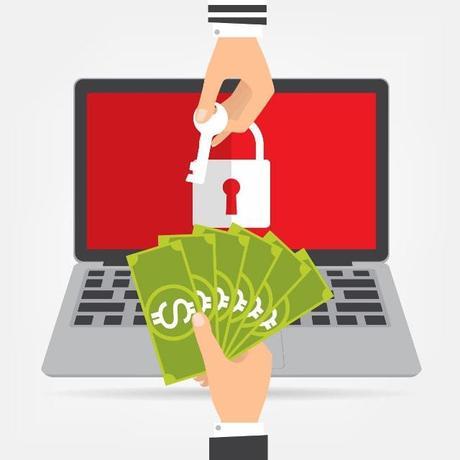As we become more and more dependent on internet, the dangers coming from the cyber world are increasing too. You may rest in the belief that it won't happen to you. But if you are not careful, you are going to pay the price sooner or later.
In the recent times, incidents of ransomware hijacking a computer or a network of devices have become much too common. Ransomware blocks access to user's data or even threaten to make sensitive data public, unless a hefty ransom is paid ( More Info). Most of the times, it's the fault of the user that lets the creeps in.
Here's what you need to do to protect yourself from ransomware.


Image Source
Stay Protected:
Always remember that prevention is better than cure. So protect your computers and smartphones with a good anti-virus. There are some good free anti-virus out there that give basic protection. But the best paid anti-virus solutions provide many layers of security. For example, an antivirus like Kaspersky even makes sure that nobody remotely switches on your laptop's camera to spy on you. So, it is a good idea to invest in a well-reputed antivirus solution. You can also use free software like Malwarebytes to occasionally scan your computer for spyware.
Have Backups:
You need to backup your data. If you have backups, even if your device crashes, or comes under the control of ransomware, you'll still have your precious data safe. The easiest way to do it is using the free cloud storage provided by services like Google Drive, OneDrive and Dropbox. If you have a gmail or outlook mail ID, you already have an account on Google Drive and OneDrive. OneDrive is now also deeply integrated in Windows computers. So make use of it. Instead of saving your important document on the device, save them on the cloud. Or at least make regular backup copies and stow them away somewhere safe.
As per Rana Gupta, Vice President - APAC Sales, Identity and Data Protection, Gemalto, "Data is the new oil in the digital economy, ransomware attacks that restrict access to important data until the attacker is paid are becoming increasingly common. However, neither businesses nor individuals should pay ransoms to unlock any files that have been affected by a ransomware attack, as this incentivises and rewards these kinds of attacks. In order to prevent becoming a victim of a ransomware attack, data should be backed-up and encrypted, and stored away from the network the rest of the data is stored on. This means that, in the event that a ransomware attack locks someone out of their files, they will have secure copies available. By doing this, the victim would be able to return to business-as-usual quickly and efficiently."
Be Wise:
Ultimately, a computer is just as safe as its user is wise. If you are not a careful internet user, no antivirus or firewall can keep you safe. Here are some points worth keeping in mind if you want to protect yourself from ransomware and other viruses:
- Don't visit crappy sites. The sites that begin with https instead of http are securer.
- If you have a good antivirus, it will alert you if you are about to visit an insecure page. Better not ignore its warnings.
- While searching, use WOT (Web of Trust) to know which search results are safe and which not. WOT can be added as an extension on Chrome, firefox and mobile browsers. It puts coloured markings on the search results to indicate their threat level. (Not needed if your anti-virus already has this feature.)
- Download stuff only from a trusted source. Better avoid the lure of free stuff like movies, songs and games. Sometimes, the free can prove too expensive.
- Always be careful in clicking on the links you get in emails, social media messages, on WhatsApp, Skype etc. If you are on a computer, hover your mouse over the link. This will make the full URL visible at the bottom of your browser. You can also use link checkers like https://sitecheck.sucuri.net/ to check a link.
- Stay updated. Apply all the software security patches that you get. If you are using a very old operating system that no longer gets update, better to ditch it for the new.
- Don't blindly trust any message, even if it comes from your friend or colleague. If it tells you to open a link or give your personal details, be sure of its authenticity first.
- Don't fall prey to flashy ads on social media offering you free data, free phones, or free whatever. They may lead to malicious sites or apps.
- Be careful even while downloading an app from Google Play Store. Check its ratings, number of downloads and permissions before installing. It's also a good idea to check the developer's website to make sure it's an authentic app, and not a malicious copy.
- Better to spend some money in securing your device or getting your entertainment fix. The free fun may prove too costly otherwise.
Just take care of these precautions to protect yourself from ransomware and other viruses. Stay wise, stay safe.

